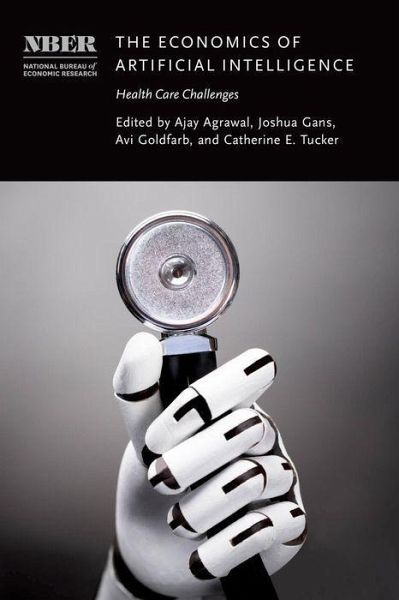
The Economics of Artificial Intelligence
Health Care Challenges
Herausgeber: Agrawal, Ajay; Gans, Joshua; Tucker, Catherine E.; Goldfarb, Avi
Versandkostenfrei!
Versandfertig in 2-4 Wochen
105,99 €
inkl. MwSt.

PAYBACK Punkte
53 °P sammeln!
A timely investigation of the potential economic effects, both realized and unrealized, of artificial intelligence within the United States healthcare system. In sweeping conversations about the impact of artificial intelligence on many sectors of the economy, healthcare has received relatively little attention. Yet it seems unlikely that an industry that represents nearly one-fifth of the economy could escape the efficiency and cost-driven disruptions of AI. The Economics of Artificial Intelligence: Health Care Challenges brings together contributions from health economists, physicians, philo...
A timely investigation of the potential economic effects, both realized and unrealized, of artificial intelligence within the United States healthcare system. In sweeping conversations about the impact of artificial intelligence on many sectors of the economy, healthcare has received relatively little attention. Yet it seems unlikely that an industry that represents nearly one-fifth of the economy could escape the efficiency and cost-driven disruptions of AI. The Economics of Artificial Intelligence: Health Care Challenges brings together contributions from health economists, physicians, philosophers, and scholars in law, public health, and machine learning to identify the primary barriers to entry of AI in the healthcare sector. Across original papers and in wide-ranging responses, the contributors analyze barriers of four types: incentives, management, data availability, and regulation. They also suggest that AI has the potential to improve outcomes and lower costs. Understanding both the benefits of and barriers to AI adoption is essential for designing policies that will affect the evolution of the healthcare system.


